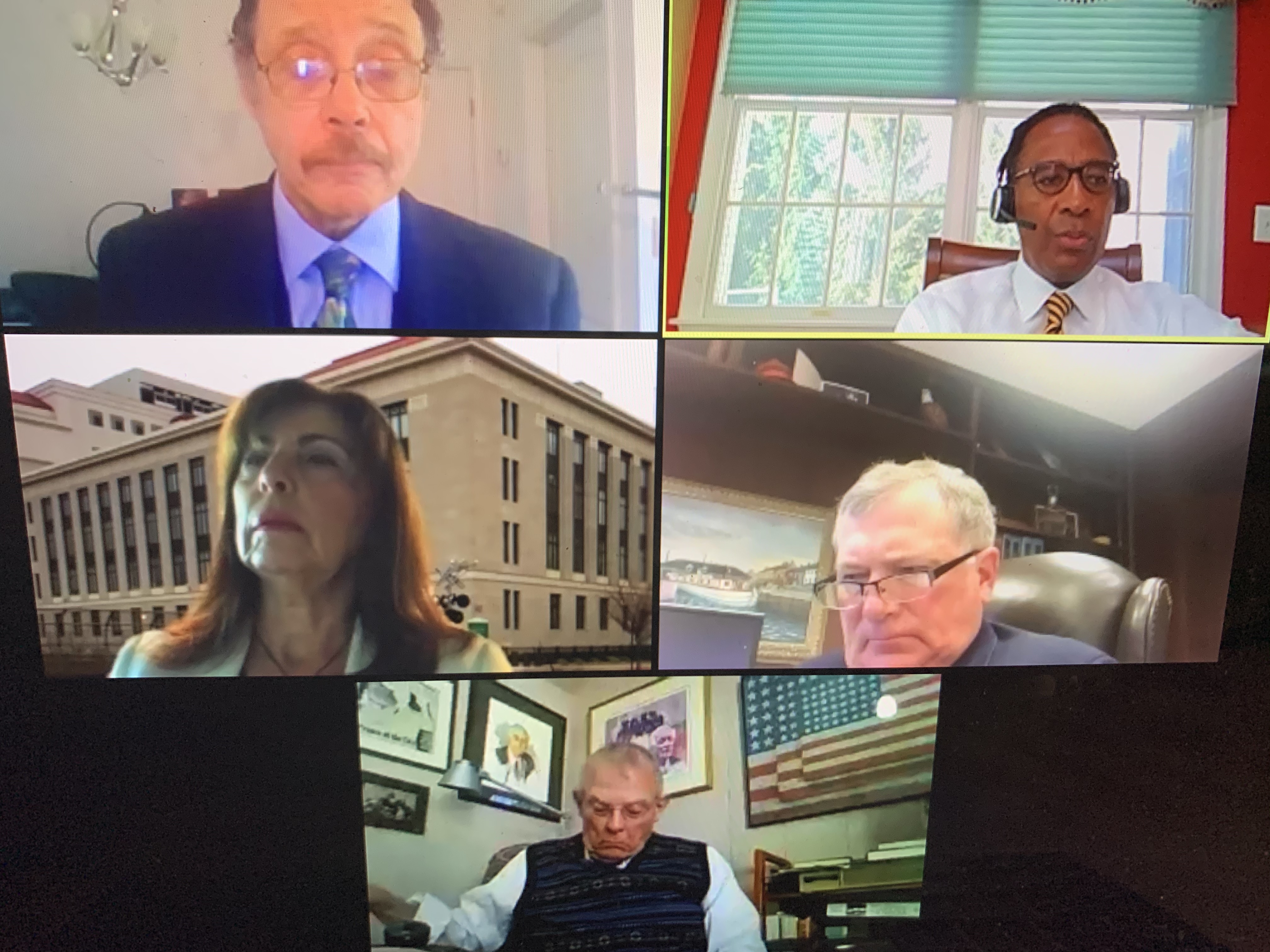 Judicial leaders said they will be “guided by the science” when it comes to the physical re-opening of state and federal courts in New Jersey, which have been operating virtually in the wake of the COVID-19 pandemic.
Judicial leaders said they will be “guided by the science” when it comes to the physical re-opening of state and federal courts in New Jersey, which have been operating virtually in the wake of the COVID-19 pandemic.
“We lawyers, we judges, can’t really define when it’s safe to do certain things,” said Acting Administrative Director Judge Glenn A. Grant, of the New Jersey Administrative Office of the Courts at the Thursday morning program “The Courts in Times of Crisis,” part of the New Jersey State Bar Association’s Virtual Annual Meeting.
The seminar, moderated by Raymond Brown of Scarinci Hollenbeck, was a wide-ranging discussion of historical context, present-day challenges and implications for the future of the state and federal court system. In addition to Grant, panelists included Chief Judge D. Brooks Smith from the U.S. Court of Appeals for the Third Circuit; U.S. District Chief Judge Freda L. Wolfson; and retired state Superior Court Judge Nelson Johnson, who is also an author and historian.
“Candidly, there’s nothing (in history) that compares to where we are right now,” said Nelson, adding that the impact of the pandemic and its economic fallout would be worse than 9/11, Hurricane Sandy and World War II. “Not only in terms of the legal system, but in terms of society...we are only at the beginning stage.”
In the case of the federal courts, both Wolfson and Smith noted that the federal courts in New Jersey were already in something of a crisis before the pandemic struck, at least from a staffing perspective. There are currently six vacancies on the federal bench.
At the same time, Wolfson and the other panelists stressed that while the courthouses have not been physically open, the courts have remained open for business, with virtual conferences and other proceedings.
On the state level, Grant said the courts have had over 20,000 events involving over 142,000 participants on virtual platforms over the last two months.
Brown told the panel that the question that he has heard most from his colleagues is when jury trials would resume. Both Grant and Wolfson said it was far too premature to hazard a guess.
The federal courts have a four-step phase-in plan to re-open in-person proceedings, Wolfson said. In New Jersey, “We are in step zero right now,” Wolfson said, with hopes of getting to step one in June, which would likely involve appearances for emergent or exceptional circumstances.
“It is going to be a gradual process,” she said. “Here in New Jersey, we’re not the same as every district in the country." While other federal courts have started jury trials, “we are nowhere near that and I cannot tell you when we will be conducting jury trials.”
Grant said that New Jersey courts are in the early stages of planning, looking at as what kinds of jury trials would be possible in person while maintaining social distancing. They have looked at re-configuring court facilities for example, while trying to keep intact the constitutional rights of defendants to see the jurors.
Other constitutional questions also loom large, Smith noted. “What happens when the jury pool may be of sufficient size, but it has indeed been affected demographically” be it by age, race, or other factors? “Are we at that point confronting whether we have a fair cross-section of the community?”
In terms of other lasting impacts, the panel discussed whether the technological advances that have enabled some court proceedings to continue might affect the future of the court system overall. Panelists said they could see virtual appearances remaining in place for routine matters.
Still, “There is a lot to be said for actual personal face-to-face interaction,” Smith said. He referred to the sentencing colloquy that judges deliver. “I cannot imagine going through waivers of such importance constitutional and other rights without actually being able to see and have before me the person making those waivers.”
Johnson agreed. “Having people in the room together does make a difference in resolving problems.”